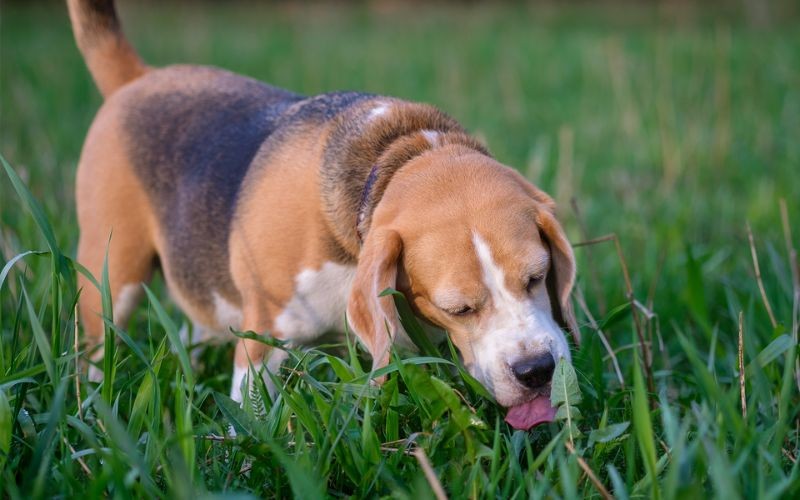
Why do dogs eat grass?
During our daily life with our dogs, there is a good chance that we’ve seen them munching on grass. Although this behavior may leave us puzzled sometimes, it is quite common among canines of all breeds, and particularly in younger subjects.But why exactly do they do it? While there's no definitive answer, several theories have been proposed to shed light on this behavior.
Here below are some of the most common theories accredited to this behavior.
Nutrient deficiency: Some experts suggest dogs may eat grass to supplement an unbalanced diet as they may not be intaking all their nutrients. However, the correlation between grass eating and nutrient deficiency requires more investigation. If your dog is fed on a complete commercial diet is it most unlikely that this behavior could be attributed to a lack of nutrients.
If however you have concerns about your pet’s diet get in touch with a Farmina Nutrition Consultant who will create a personalized nutritional plan, and suggest the correct food to meet his daily nutritional needs.
Need for fiber: Dogs may instinctively seek out grass to fulfill their need for fiber in their diet, which promotes a healthy digestion and aids with their bowel movements. Switching to a food with an adequate amount of fiber should stop your furry friend’s need for nibbling on grass.
Boredom: Especially for pets who are used to staying in the backyards, the lack of mental and physical stimulation will most likely lead to boredom. Dogs may recur to grass eating to alleviate their restlessness. In this case the solution may be to simply engage in more physical activities or add additional fun activities to his schedule.
Relief from nausea or upset stomach: Dogs may turn to grass a natural remedy for an upset stomach or will try to induce vomiting when they are feeling nauseous. If the product of vomiting is of yellowish color, meaning of bile origin, chances are that this event occurs in the morning. If this is the case, your dog is running on an empty stomach, and is eating grass to compensate for it. In this event, feed him a small account of kibbles before your morning walk, and you should notice that this behavior shall disappear.
Natural Instinctive Behavior: Some theories suggest that dogs eat grass due to an instinctive behavior inherited from their ancestors. Natural selection may have favored periodic plant eating if it provided a selective advantage among canids displaying this behavior. In particular, ingesting non-nutritive plant material may help expel intestinal parasites mechanically.
They enjoy it: Finally, it could be that dogs enjoy the taste and texture of grass, especially in spring when new lawns start to grow. Additionally, this behavior may emerge, especially in warmer periods, when your pet is thirsty. So always be sure to leave a bowl of fresh water available for your pooch.
What to do if your dog eats grass
In most cases, eating grass is a perfectly normal behavior for dogs, especially if it's occasional and not accompanied by other concerning signs.
If you are allowing such behavior, always ensure that the grass your dog is consuming hasn't been treated with pesticides or herbicides, as these can be harmful to your furry friend, and that there are no plants that are considered toxic for him. Additionally, keep an eye out for other animal droppings, as they could contain parasites or bacteria which can lead to more serious health issues.
However, if you notice that your dog is frequently eating grass and vomiting, or if they exhibit other concerning behaviors, it's always strongly recommended to consult your veterinarian. They can help determine if there's an underlying issue that needs to be addressed.
Dogs will be dogs
In the end, the question of why dogs eat grass might not have a definitive answer. It could be a combination of various factors, including instinct, dietary needs, and even personal preference. As long as your dog's grass-eating habit isn't causing any harm or discomfort, there's usually no cause for concern. So, the next time you catch your furry friend nibbling on the lawn, just remember—it's all part of being a dog!

